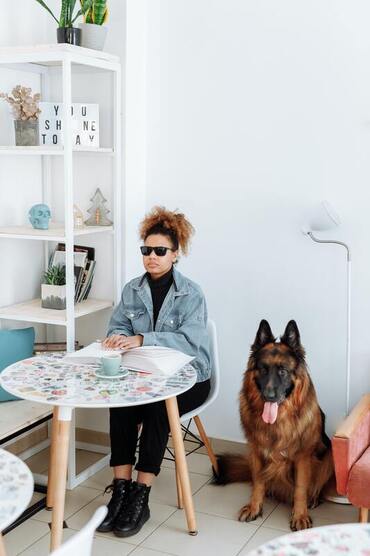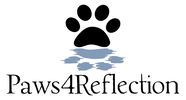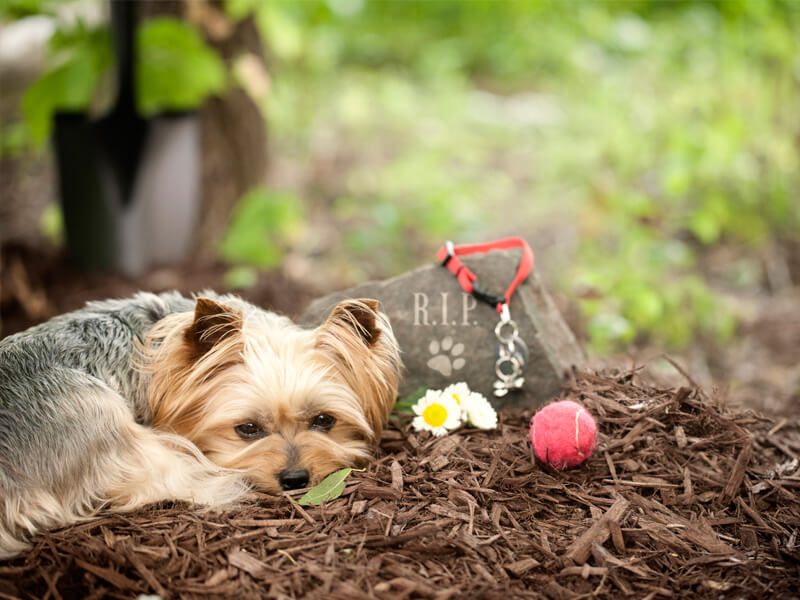|
This week, we published a five-day series on the world of modern pet ownership. One of those stories struck a nerve with readers, sparking a Facebook thread that left us speechless. by Gillian McNally Sometimes, social media really is a wonderful place In the past week, The Daily Telegraph lifted the lid on Australia’s $12 billion pet industry, taking an in-depth look at everything owners need to know to survive the complex world of modern pet ownership. During the five-day series, readers shared incredible stories about their own pets, revealing a depth of compassion in the comments section of Facebook that’s rarely seen. But there was one story struck a nerve more than any other. An interview with pet loss counsellors Karen Jaques and Dr Michael O’Donoghue about coping with the death of a pet sparked a Facebook thread that moved us to tears. “My gorgeous Chevy dog. 12 1/2 years old. RIP darling boy xxx”. Shared by Heather Bolton/Facebook “My beautiful baby boy Pepper Tyszyk went to the rainbow bridge 23/5/19 aged 15, he loved his trips to Bunnings. We miss him so much.” Shared by Lisa O'Meara/Facebook Hundreds of readers took to the comments section to share images of the pets they had loved and lost, leaving emotional tributes to the companion animals that changed their lives. Not only was it a chance to connect with others who had been through the same experience, but the reaction showed how deeply we all feel the loss of a beloved animal, even if it’s not widely acknowledged by society. “My best buddy Chubbs. Died of a congenital heart. Broke my heart too when he was gone. I’ve lost a few pets over the years. It’s like losing a family member. At the least a good friend. Just like losing a friend or family member, you can’t “just get over it.” Shared by Clinton Lloyd/Facebook Original article can be found here.
ritten by Larissa Ham When your favourite animal friend passes away, it can be devastating. Here’s how to cope with the loss. Is it any wonder that the death of a beloved pet can leave us reeling – perhaps even in the same way we’d grieve the loss of a human friend or family member? “It’s a massive impact – something you’ve loved and cared for, maybe for 10, 15 years, is suddenly gone out of your life and there’s a big hole,” says vet Dr Michael O’Donoghue, of pet loss and grief support network Pets and People. Sometimes, he says, the grief can be intensified if the death was sudden and unexpected – for example if your dog is hit by a car. Often, owners also have to decide when their pet’s life will end, which can complicate the grieving process. Michael says people often feel a heavy sense of responsibility – even guilt – that is hard to shake. If you have lost a beloved dog, cat or other animal, try these coping strategies: Honour your pet It’s important to find time to be by yourself and just let the tears flow, says Michael. You might also decide to memoralise your pet by, say, putting their ashes in an urn, making a photo album or journalling. Write down your thoughts Pet loss counsellor Karen Jaques says journalling allows you to get all your thoughts and feelings on to the page, perhaps including writing a letter to your pet. “The other thing I tend to get people to do is on bad days, to actually go back and review what they’ve written,” says Karen. “Because sometimes they think they aren’t moving ahead in their grief and in actual fact they are.” Find someone who gets it One of the biggest impediments to healing is trying to share your grief with those who don’t understand, says Karen. “People that aren’t animal lovers that might be in your circle of friends, they’re not going to be your support group,” she says. “They might have been great when you broke up with your boyfriend, but now that you’ve lost something that’s actually even more important, they’re not going to be great at that.” Seeing a pet loss counsellor or joining an online support group such as the Pet Loss Grief and Terminal Illness Support Group on Facebook may also help.
How to help a friend who has lost a pet What if you don’t know what to say to a friend or family member who has lost a pet? “Sometimes it’s better actually to not say much at all, just to check in on their feelings, rather than coming out with comments like ‘it was only a bird’,” says Karen. So ditch the advice and just be there to support and listen. Will a new pet help ease your grief? Karen says a new pet can help fill a gap, however she strongly advises against trying to replace your pet with another that looks similar. “If you do that, you’re setting yourself up for disaster. People get them home and that pet has different mannerisms, has a different personality and doesn’t meet expectations,” she says. So if you’re looking for a quick grief fix, Karen suggests holding off until you’re really ready. “But if your heart is absolutely aching to have that little cuddly thing snuggled up to you, then that’s fine.”
Written by Larissa Ham. Original Article can be found here.
 We talk a lot about losing a pet through death, but not so much about the trauma associated with the loss of a service animal. For animal lovers, we know what our pets mean to us and the enormous impact of losing them. But what if your companion animal was your ‘everything’. Your eyes, your nose, your ears, your housemate, your protector and your full-time companion. Many people with a range of conditions rely so much on their service/assistance animals. Assistance/therapy dogs help those with PTSD, waking them as they begin to experience a nightmare; help the visually impaired navigate a world with no light; wake the parents of an epileptic child to alert them to an imminent seizure; and help autistic people regulate their emotions. In these and so many more instances, the service animal is the key to a better quality of life. When your service dog is so much more than a beloved pet, what is it like to lose them? Is the grieving process different? As a pet loss counsellor I have had several experiences in helping people with a disability who have lost their companion/service dog. Just as the partnership between human and pet in this situation is multifaceted, so is the grief that accompanies the loss. One client, Ruth (not her real name) had her service dog Ruby for 15 years, and then was faced with the decision to euthanize her due to failing health. This was not Ruth’s decision alone, as Ruby was trained and matched through an organisation which was also involved in the decision. Sadly, Ruby never got to enjoy her well earned retirement. When Ruth came to me it was apparent that she had not had time to grasp, let alone process and heal, from the loss of Ruby. Within a week of losing her, a new service dog arrived. Although Ruth needed the ongoing assistance of a new dog, no one really understood how much losing Ruby affected her. Ruth felt that if she opened up and expressed her feelings, the organisation that supported her would see her as ungrateful. All the loss and emptiness Ruth felt was pushed to the background, and she was left in her grief with a stranger. These feelings would be similar for someone whose companion/service dog had retired and moved to another home. However, while the sadness and loss would be there, they would not be hit with the finality of death. For many people in this situation, it can feel like the universe as they knew it, no longer exists. Theirs is a grief that is not validated, and not given the time and space needed to accept and acknowledge the loss. By having to move on so quickly with another service animal, Ruth felt she was betraying the memory of Ruby. One of the tactics I suggested to Ruth was to keep Ruby in the present by integrating her into this new world and keeping her legacy alive. How? Simply by talking to Ruby in the present tense, telling the new dog stories about the wonderful times Ruth and Ruby shared, and telling Ruby what she brought to Ruth’s life. Acknowledging that the new service dog was not going to be the same as Ruby left space in Ruth’s heart. This new union, especially from the beginning, would not be the same, but Ruth and the new dog could move forward and form a new bond. Being mindful and keeping a place in each day for Ruth to reflect on the life she shared with Ruby gave her grief the space it needed, allowing her to eventually accept her loss and accept her new world with a new helper. People who lose a service animal need to get to a resting place where they can realise that these little helpers, sent to people with challenges, are their angels in this life and their guardian angels in the next. |
AuthorKaren Jaques ArchivesCategories |
|
© 2021 Paws4Reflection
|




 RSS Feed
RSS Feed